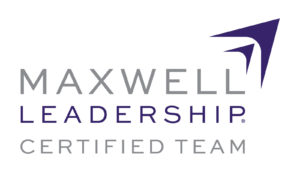
A good traveler has no fixed plans and is not intent on arriving. – Lao Tzu
Some years ago, I was with a group of friends and we were taking a day trip from Athens, Greece up to Delphi – some 115 miles away. We were off to see some of the ancient ruins – including the famed Delhi sanctuary and the Delphi museum.
After enjoying our day in Delphi, the time came to return to Athens. But there was a catch. The weather turned bad and they were experiencing the worse snowstorm they’d had in many years. The route back to Athens would not be the one we would take going back.
We made our way over to the coast and hopped on a ferry that eventually returned us to Athens. What normally would have taken only a couple of hours turned into a long and tiring trip that got us back safely but exhausted.
On a humorous note, while aboard the ferry, some in our group made mention of the need to use the restroom. A smiling deckhand kindly pointed to the sign on a door where the restroom was located. Upon opening the door, the “facilities” was simply a hole in the floor a couple of inches in diameter. Several made the decision to wait until we were back on land.
In your leadership, there will be times when things do not go according to plan. And when this happens, you will have to adjust accordingly. Here are a few things to remember as you face the unexpected.
Flexibility is essential
It’s been said that what doesn’t bend, breaks. And in leadership, you have to anticipate the unexpected, and when it happens you have to be flexible at the moment. John Maxwell observed it this way, “Flexibility says there is more than one answer.” And this is what smart leaders recognize – there is more than one answer to whatever you’re going through.
Your attitude matters
When we left Athens for our day trip over to Delphi, we had no way of knowing that one of the worse snow in decades was going to happen that day. But – snow happens! In leadership, sometimes the unexpected happens. In these moments we are reminded that it’s not what happens to us that matters, it’s how we respond. Your attitude in times of adversity will make you or break you. Choose it wisely.
Adaptability is your ally
One definition says an adaptable leader is “someone who is able to change their behavior in response to changes in a situation.” It’s inevitable that you will face challenges and changes in your leadership. When they come, being adaptable will not only serve you well but can be an invaluable teachable moment for your team to learn from.
Final Thoughts
Just as it was for my trip to Delphi, the road that has brought you to where you are today, may not be the same road to take you to the next level tomorrow. Conditions on the ground may change and you have to learn to be flexible, guard your attitude, and be adaptable.
©2023 Doug Dickerson







 Leaders who are present in the moment and are actively listening stand to gain a lot of insight that would otherwise be missed. Leaders who are present are asking questions like: Currently, what is your greatest challenge? If you could change one thing, what would it be? As a team, do you believe that we are moving in the right direction? What do I need to know that I don’t? What are your growth goals and how can I help you achieve them?
Leaders who are present in the moment and are actively listening stand to gain a lot of insight that would otherwise be missed. Leaders who are present are asking questions like: Currently, what is your greatest challenge? If you could change one thing, what would it be? As a team, do you believe that we are moving in the right direction? What do I need to know that I don’t? What are your growth goals and how can I help you achieve them?


